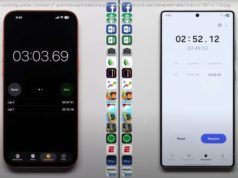 There’s a new cable and connection standard called HDMI 2.1 and it includes new high-bandwidth cables called « 48G. » If you’re buying a new TV or other gear, do you need to upgrade your current HDMI cables too?
There’s a new cable and connection standard called HDMI 2.1 and it includes new high-bandwidth cables called « 48G. » If you’re buying a new TV or other gear, do you need to upgrade your current HDMI cables too?
For the vast majority of you readers, the answer is no.
Below is a list of potential reasons why you might think you need to upgrade your HDMI cables. In mst cases you won’t, and I’ll tell you why in each case.
For the full details on HDMI 2.1, check out HDMI 2.1: What you need to know (I know, the title is a bit on the nose). There are a few extreme cases in which you might want one of these new 48G cables, but for most people you won’t have to worry about it this year and probably not next year either.
If you’re buying a new 4K TV, and your current sources work with your current TV, they’ll probably work with the new TV too. If you plan on also buying an Ultra HD source, like a Roku Premiere+ or an Ultra HD Blu-ray player , chances are your current cables will also work with those. Probably. Check out the next section.
This is really the main situation where you might want new cables. Computers can send the maximum resolution and frame rate possible in the current HDMI spec, and are the only source that can do any of the resolutions in the upcoming HDMI 2.1 spec (and then only barely). If you’ve got a beefy computer and want to connect to a UHD TV, it’s probably worth it to get a Premium Certified cable.






